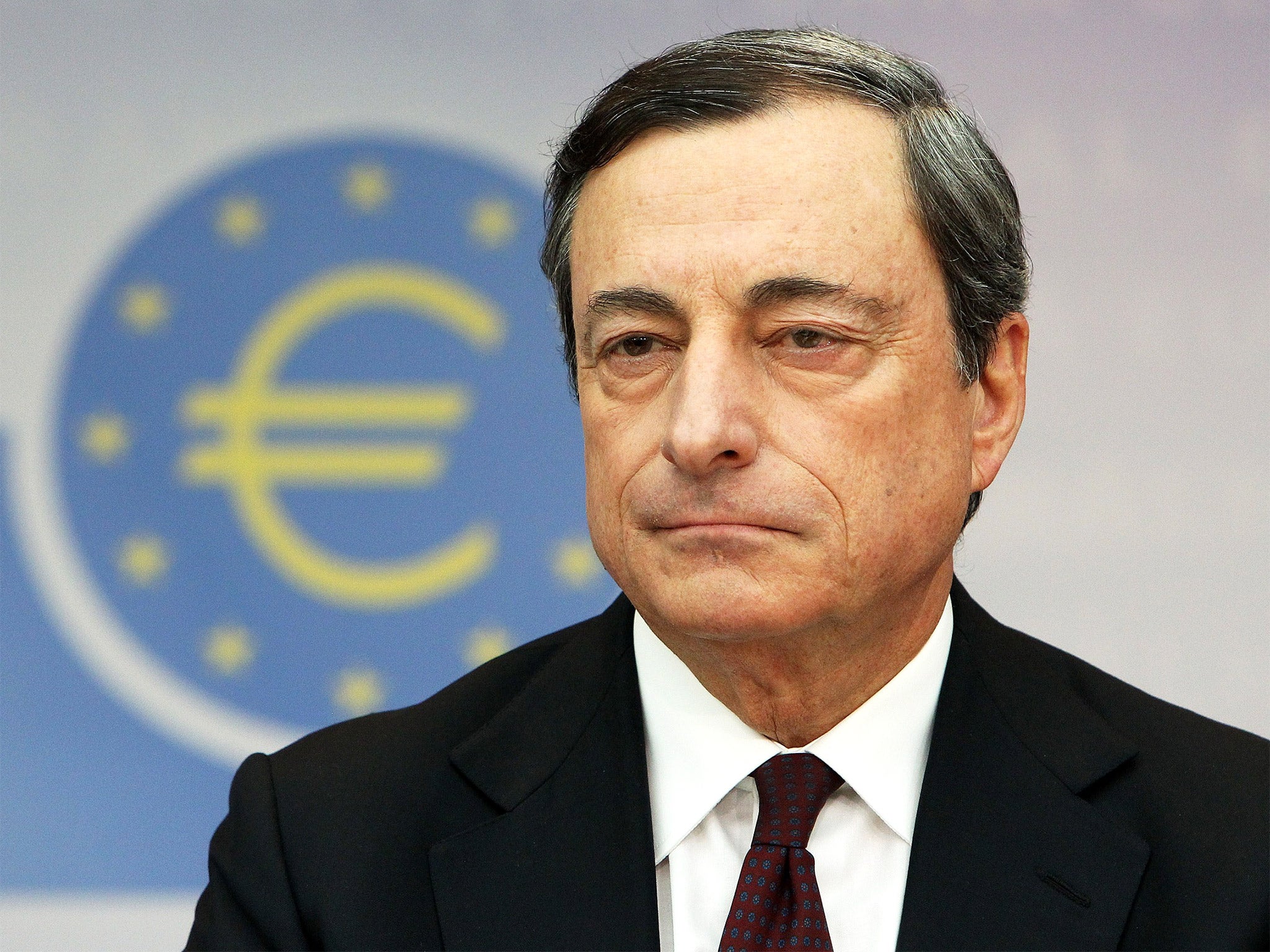Draghi celebrates eurozone recovery as euro slumps against the dollar
The ECB chief told a Frankfurt crowd that the eurozone slowdown has “reversed”

The euro has hit a 12-year low against the dollar days after Mario Draghi, president of the European Central Bank, told an audience in Frankfurt that the slowdown in the eurozone had “reversed”.
The ECB began its €1.1 trillion (£775.57 billion) money-printing operation — or quantitative easing — on Monday.
The euro hit a near 12-year low against the dollar, falling 0.73 cents to $1.6047. The pound was up again against the euro, hitting a seven-and-half-year high of 1.4149 — a gain of 0.65 eurocents.
Stock markets, which took a serious knock yesterday on worries over the strengthening dollar, paused for breath today. The FTSE 100, which fell 2.5 per cent yesterday, was up 22.1 points, or 0.33 per cent, at 6724.94. Paris and Frankurt market indices were up around 1 per cent.
“We can deploy and will deploy monetary policy in a way that can and will stabilise inflation in line with our objective,” said Draghi in his first public speech since starting QE.
“Our monetary policy is certainly supporting the recovery.”
But some analysts questioned the ECB’s strategy when German and Dutch bonds are already offering negative yields and falling.
The ECB cannot buy bonds yielding less than its own current deposit rate of minus 0.2 per cent.
Today, the German 10-year bond yield hit a record low of minus 0.2 per cent, while French 10-year bonds hit minus 0.5 per cent. By contrast, the US Treasury 10-year yield is 2.11 per cent.
“It’s like the ECB is chasing its own tail, said Ciaran O’Hagan, head of European rates at Société Générale. “Yesterday the Bundesbank could have bought 2018 notes. Today it needs to go out to 2019. The universe of buyable bonds is melting like snow.”
The euro has fallen by some 11.6 per cent since the start of the year, beating its previous record quarterly fall of 10.6 per cent which occurred at the height of the financial crisis in the third quarter of 2008.
Join our commenting forum
Join thought-provoking conversations, follow other Independent readers and see their replies
Comments
Bookmark popover
Removed from bookmarks